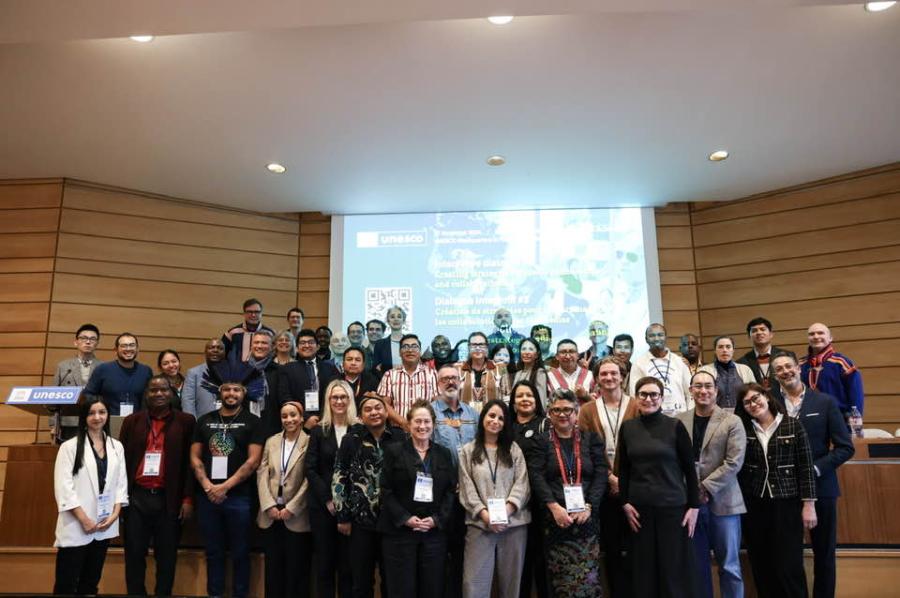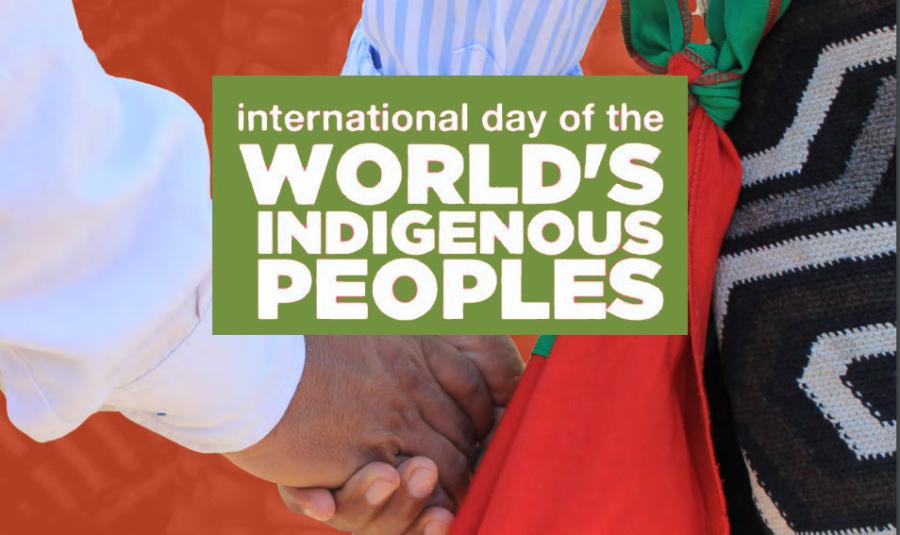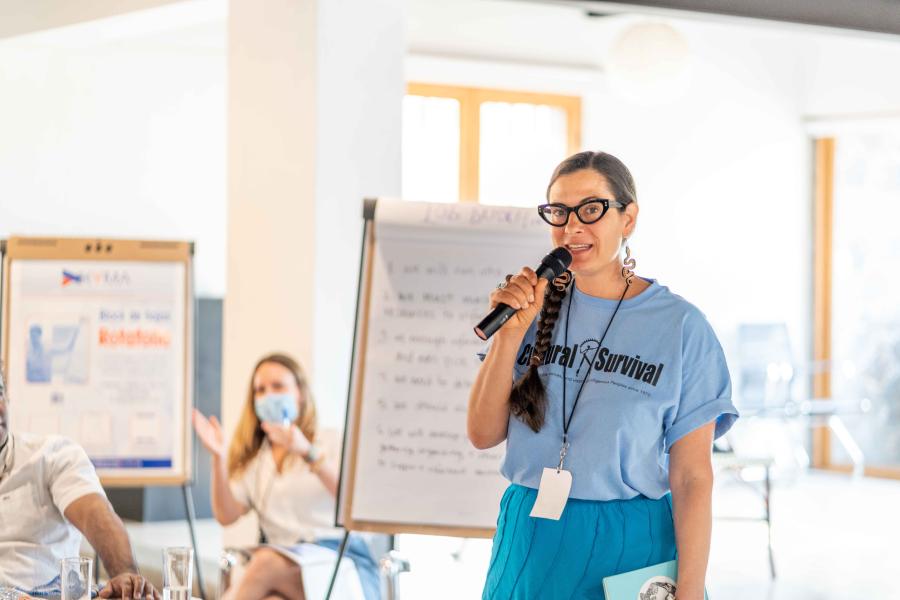
Indigenous women have managed to break many barriers and access spaces historically reserved for white men. They have positioned themselves as agents of change, incorporating ancestral knowledge from their communities. From medicine, art, gastronomy, music, to linguistics, these young women are leading movementns of resistance and transformation. Their impact on shifting current paradigms should be uplifted on every occasion. Their actions for environmental stewardship, defending their territories, and strengthening and revitalizing their cultures are crucial amid the crises we currently face.
We are proud to introduce you to three talented young women who are Cultural Survival Indigenous Youth Fellows. Our Indigenous Youth Fellowship Program supports young Indigenous leaders between the ages of 17-28, who are eager to learn about technology, program development, journalism, community radio, media, and Indigenous Peoples’ rights advocacy. Since 2018, we have awarded 110 fellowships supporting 204 fellows. Fellowships have allowed youth to build capacities in Indigenous rights, Indigenous languages, cultures, and Traditional Knowledge. It is an opportunity to assist fellows to represent the voices of their communities and bring awareness of local issues to global conversations through their proposed projects while strengthening their cultural identities and leadership.
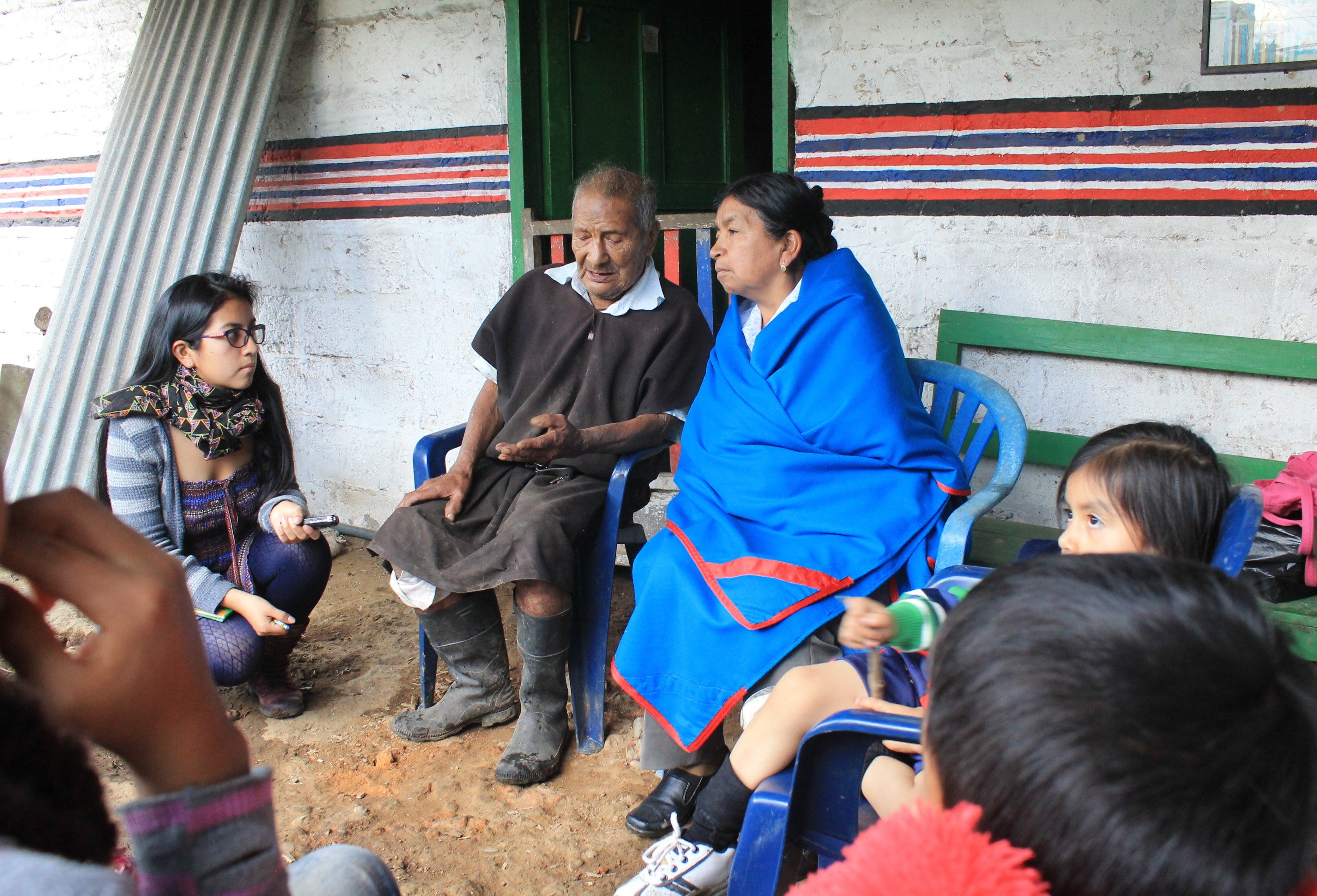
Adriana Vanessa Tisoy Tandoy (Inga)
Adriana Vanessa Tisoy Tandoy was born in Santiago Putumayo, Colombia. Her parents guided her on the path of respect and care for Mother Earth (Alpa Mama). She obtained a degree in Spanish Language and Literature, and later specialized in comprehensive child and adolescent development. She currently represents the collective of young people called Kusikui, serves as a mediator for the Taita Gabriel Tisoy Mansajoy Itinerant Library (BRI), and works as a research coordinator in the Inga language on the radio program "Inga rimai."
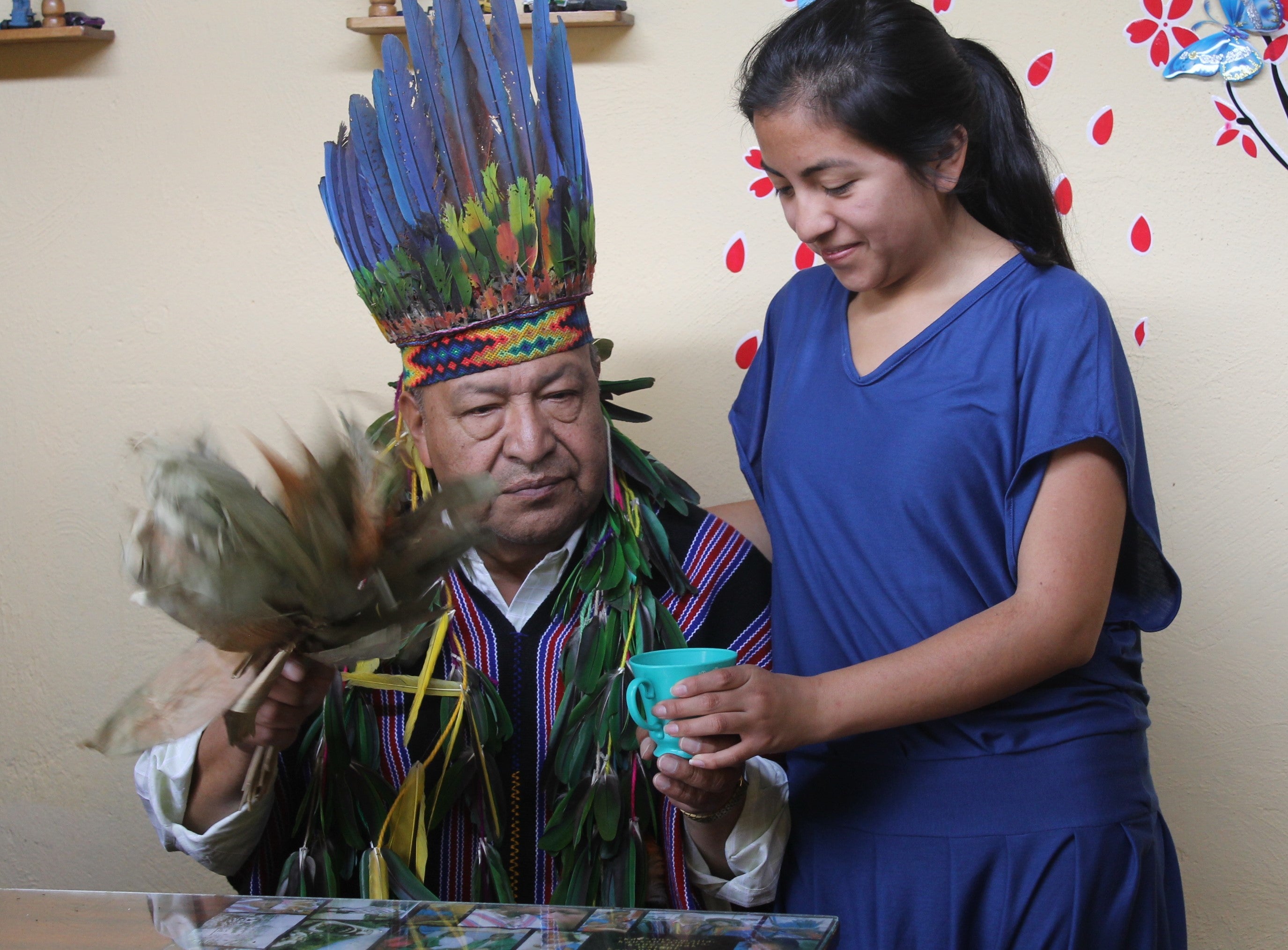
Inga is an endangered language as children and youth are gradually using their native language less and less. Adriana’s fellowship project "Uchulla parlu uchullakunamanda/Cuentos cortos en Inga para niñas y niños" was carried out from July 1, 2022, to May 22, 2023. The project was aimed at youth to learn about Inga language, worldview, and Traditional knowledge. One of the essential tools used was intergenerational dialogue, through which the knowledge of Elders was transmitted to the younger generations.
To demonstrate the success of the project, Adriana produced an illustrated book, organized workshops, and created a podcast. The radio program "Inga rimai", where Vanessa Tisoy currently works, played a central role in executing her fellowship plan.
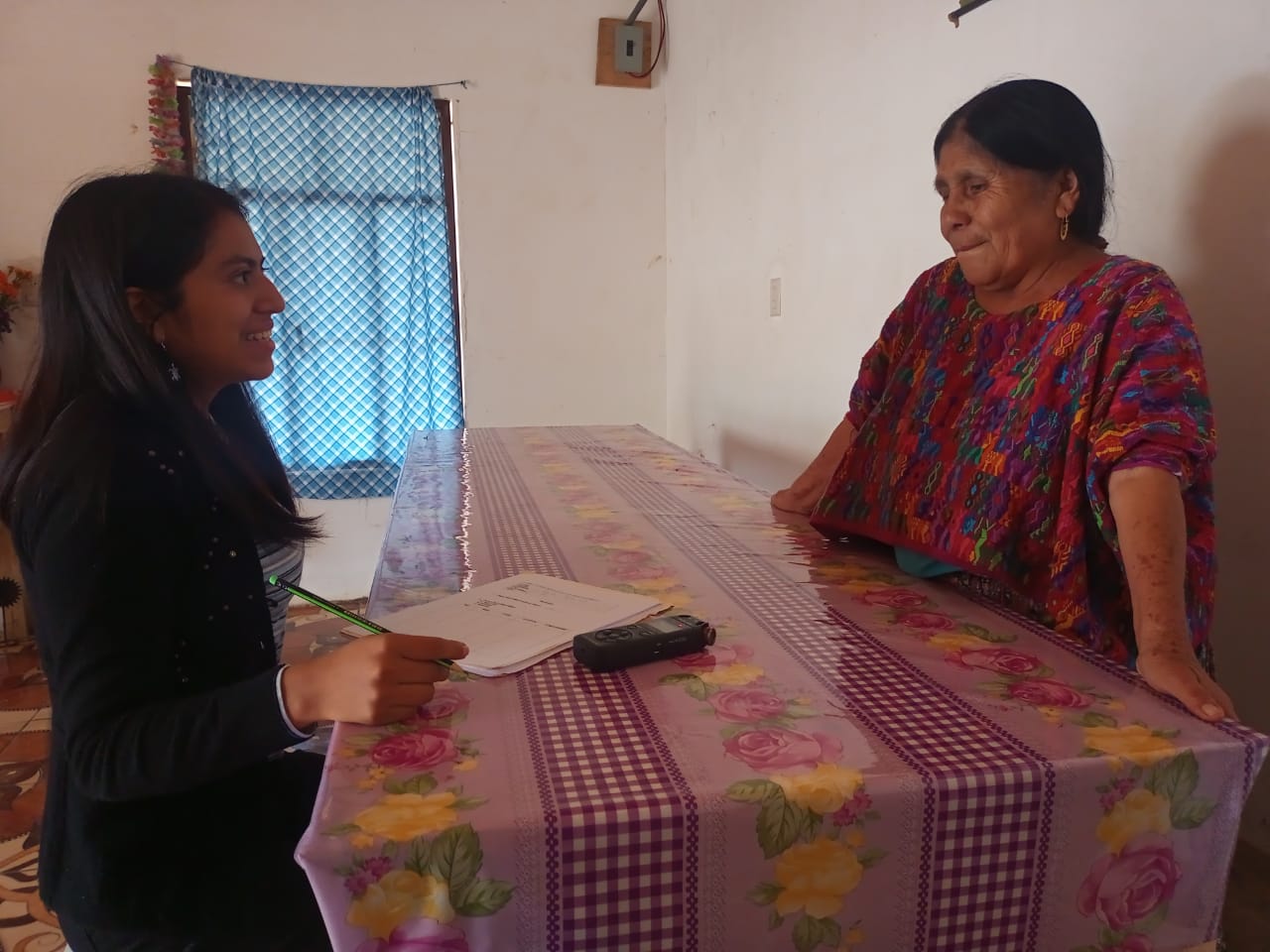
Virginia Maribel Sam Chub (Maya Q’echi’)
Virginia hails from the village of Tipulcan, San Pedro Carcha, Alta Verapaz, Guatemala. She has been involved in activities related to land defense since 2020. Virginia also works as a legal counselor in the fight for women's rights. Currently, she is a community journalist who uses theater, photography, and audiovisual media to address topics such as territorial protection, migration, women's rights, and child labor.
Her fellowship project "EL AWAS" (Ancestral Knowledge and Practice about Human, Animal, and Agricultural Life, also known as "The Hidden" or "The Secret") was implemented from August 15, 2022, to January 30, 2023. In this project, Virginia researched the ancestral knowledge of Q'eqchi' Elders, which had to be hidden and practiced in secret due to fear of persecution by Spanish invaders who considered their practices to be satanic.
The objective of Virginia’s project is to disseminate this knowledge through recorded interviews with EL AWAS practitioners at local community radio stations. She also created a book for children on the same topic to encourage young youth to question information coming from the mainstream education system, church, and media and return to Traditional Knowledge and teaching.
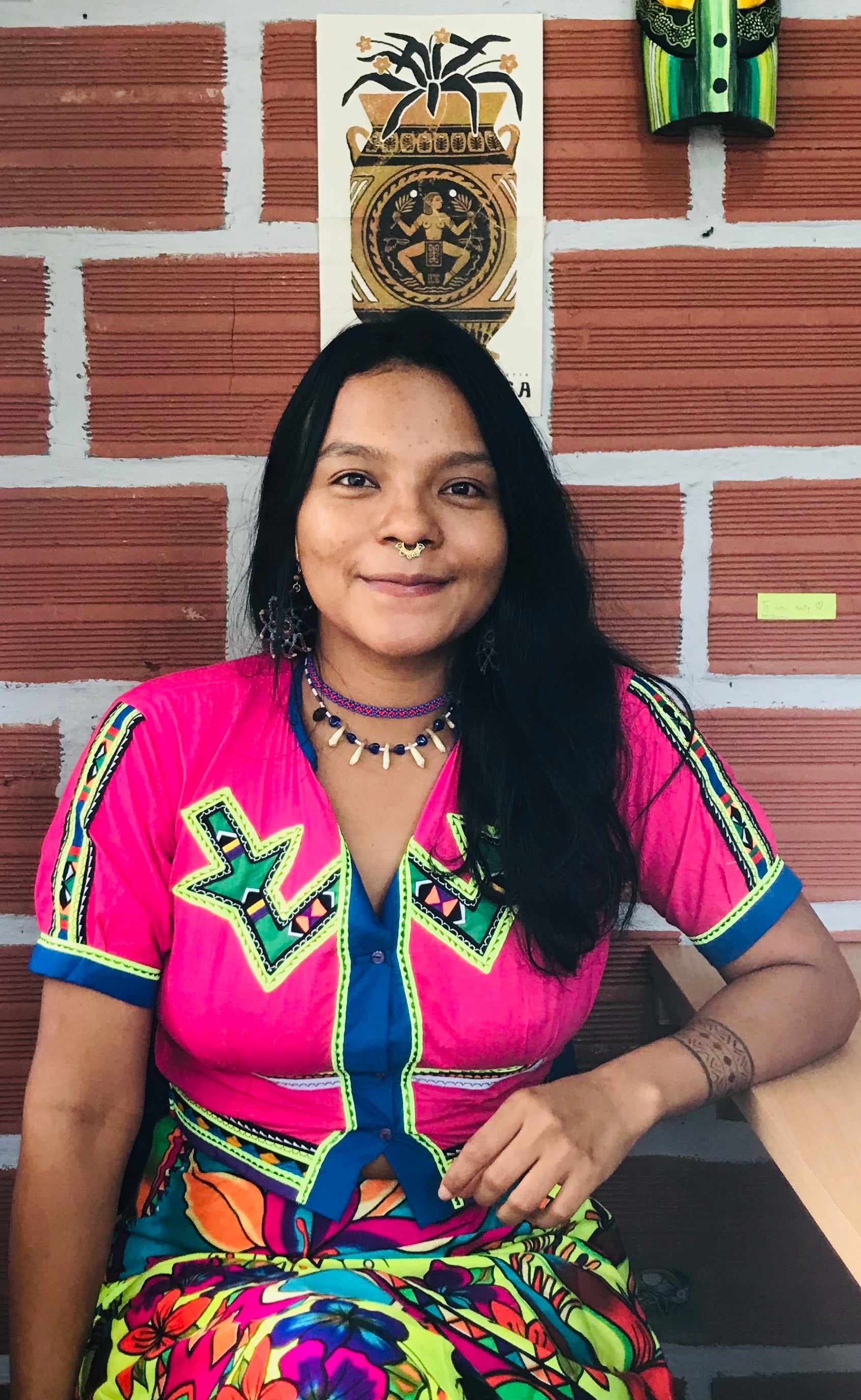
Nataly Domicó Murillo (Embera)
Nataly belongs to the Embera Eyabida Peoples in Urabá Antioqueño, northwestern Colombia. She is an educator and researcher with political and community experience and currently serves as an advisor to the Indigenous Mayor's Council of Chigorodó (Antioquia). She is also the National Coordinator for the Territories of Life-Colombia Network (TICCA) and a teacher at the Mother Earth Pedagogy program at the University of Antioquia.
In her fellowship project "Comunicar para defender los ecosistemas y la biculturalidad de los sitios sagrados del pueblo Embera Eyabida de Chigorodó (Antioquia-Colombia)," Nataly conducted a four-day workshop, along with workshop facilitators Nicolás Gutiérrez and Julián García. In the workshop, she taught a group of young people from different Embera communities principles of animation, sound exploration, photography, and lighting, with the purpose of creating animation that narrates the origin stories of the sacred sites of the Embera Eyabida Peoples in Chigorodó. The main objective of the project was to showcase and raise awareness about the ecological and biodiverse richness of their territory and the issues that threaten their community.
Embera Peoples face multiple threats, such as mining and energy exploitation and armed groups that have invaded their lands to recruit members from the local communities. Nataly’s project aims to empower youth and Embera communities with knowledge and tools that enable them to create their own messages and reflections. Additionally, it seeks to strengthen their sense of belonging and protection of their territory.
